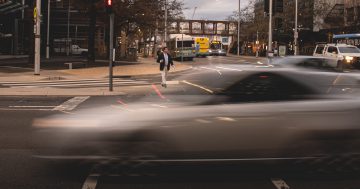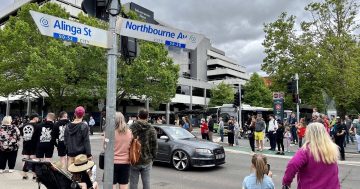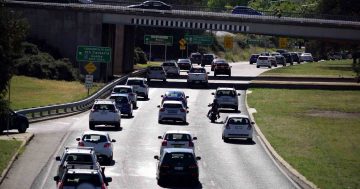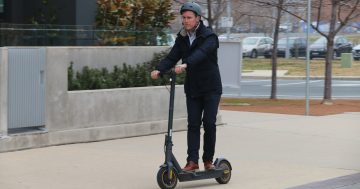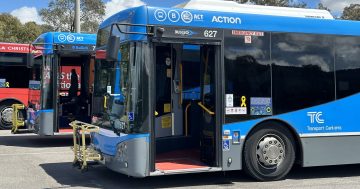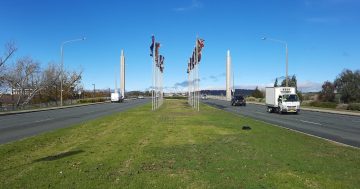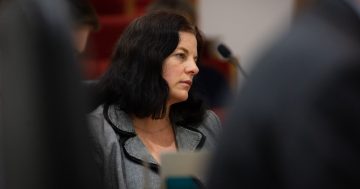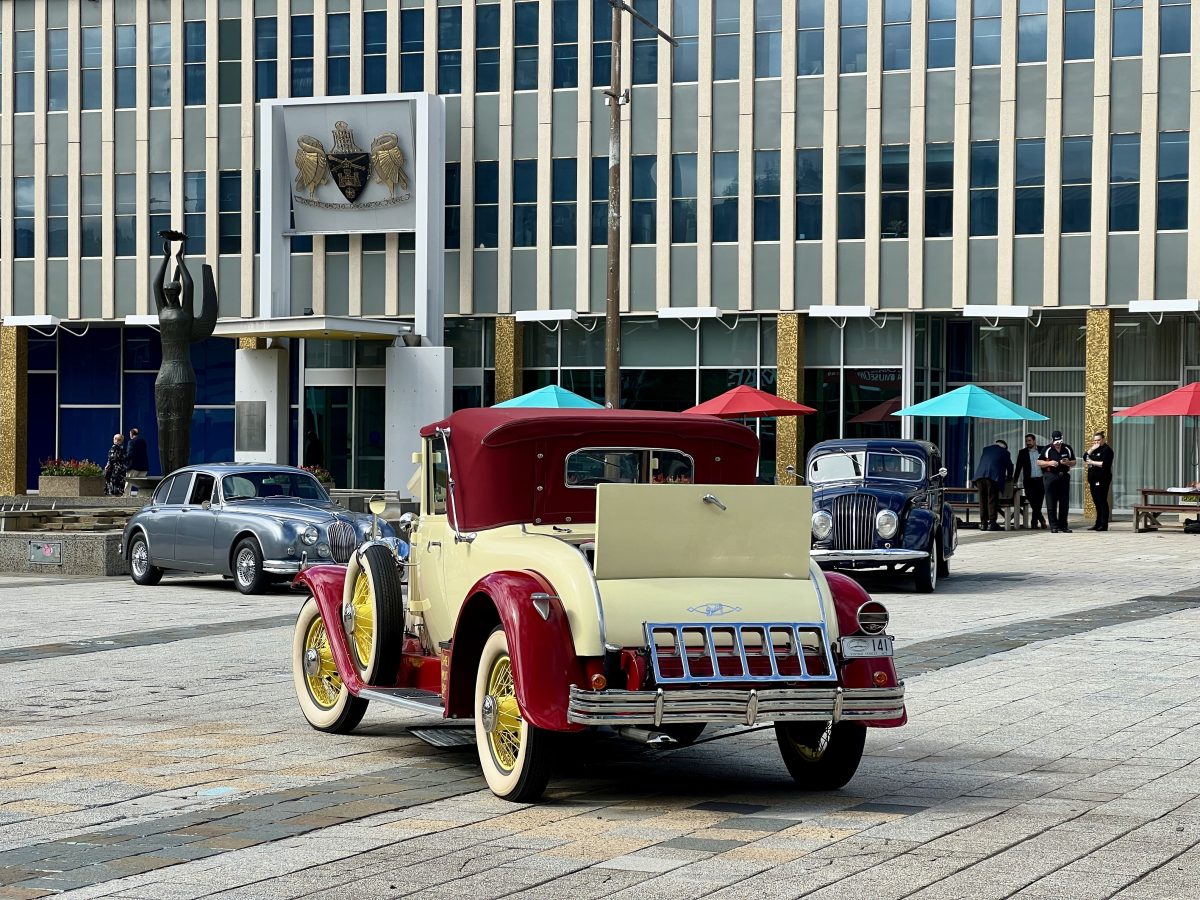
Will all internal combustion engine cars soon be ‘historic vehicles’? Photos: James Coleman.
The ACT Government has rejected claims its plans to hold a car-free day in September and establish a zero-emission zone in the city by 2030 are “anti-car”.
Canberra Liberals Shadow Minister for Transport Mark Parton moved a motion in the Legislative Assembly this week calling on the government to “stop pursuing its anti-car, anti-family agenda”.
He pointed to several policy announcements as proof “Labor and Greens want to get you out of the driver’s seat no matter the consequences”.
These include the ACT’s proposed end date for registering new fossil-fuel-powered cars in 2035, changes to the construction code allowing apartment developers to build fewer parking spaces, and plans to hold an event around World Car Free Day on 22 September.
Following a motion by Labor backbencher Suzanne Orr in early May, Canberra will also become the first city in Australia to sign up to the C40 Cities ‘Green and Healthy Streets Accelerator’. This calls for the government to “designate a significant area of the city as zero emission by 2030” and “procure only zero-emission buses from 2025”.
“These anti-car policies tend to have a high impact on families with children who often need a private car for multiple pick-up and drop-off points, as well as lower socio-economic Canberrans and those with a disability,” Mr Parton said.
“It is astounding the government continues to push an anti-car agenda while at the same time being responsible for one of the worst performing public transport systems in the country.”
Chief Minister Andrew Barr described the attacks as “university politics” and affirmed the ACT Government “is not banning the use of petrol and diesel vehicles” any time soon.
“What we do want to do is provide choice and opportunity for Canberra to take up zero emissions vehicles and other sustainable modes of travel, like public transport, walking and cycling,” he said.
“What we are proposing to support is an information opportunity for people to look at other forms of transport. Now, that may involve some temporary street closures in one area of the city to enable things to be tested and tried, but it’s not a city-wide ban on car usage.”
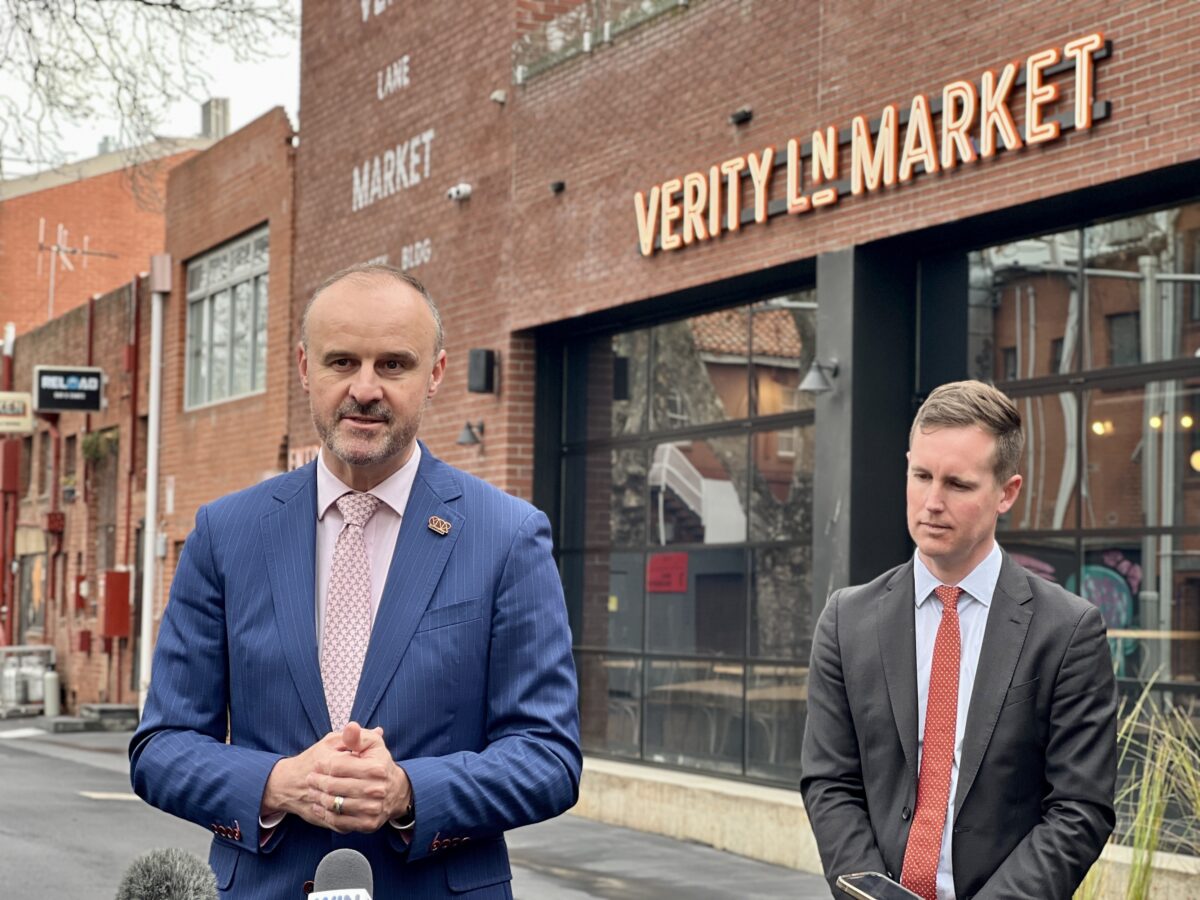
Chief Minister Andrew Barr and Minister for Transport Chris Steel said the car-free day would be more of an “active-travel-promotion day”. Photo: James Coleman.
Minister for Climate Change and Sustainability Shane Rattenbury has previously told Region the final design of Canberra’s car-free day is still being shaped, but it would be more of a “here’s-how-you-can-do-it-differently-if-you-want-to event”.
“There will still be days when people need to drive their cars,” he said.
“But there are plenty of other days and plenty of other trips we do … when we don’t have to just fall into the habit of taking the car.”
In his comments to media, Mr Barr said the term ‘car-free day’ could be misconstrued and “an ‘active travel promotion day’ is a better description”.
Similarly, Minister for Transport Chris Steel said Mr Parton’s motion was “opposing the choice and opportunity for Canberrans to bring down transport costs, take up an electric vehicle or use public transport or an active travel option”.
However, Mr Steel didn’t comment on the condition of the ACT’s public transport system or plans to improve connections to the outer suburbs.
Mr Parton’s motion was defeated in the Assembly on Wednesday (7 June), but he remained unconvinced.
In a statement, he said the government has “once again” refused to rule out the establishment of a zero-emission zone in Canberra within the next decade.
“If they’re not going to establish large petrol-powered car-free zones in our city, why do they refuse to rule them out?”
Suzanne Orr has previously told Region any zero-emission zone would be designed “so no one is left behind”.
“I would point people to examples like Paris, where they did one around a school and really looked at how they could improve the streets so everyone attending the school has safer access,” she said.
“None of this is about rapid change. We’re not going to see any dramatic changes people aren’t ready for.”












